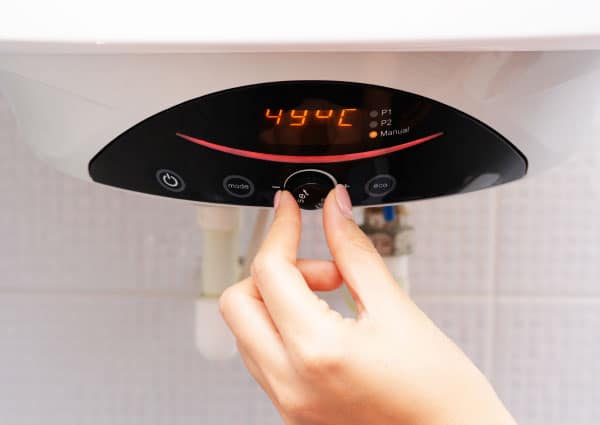Ways to Address the Common Water Heater Emergency Challenges
Ways to Address the Common Water Heater Emergency Challenges
Blog Article
We have encountered the article about Is Your Water Heater Leaking? directly below on the web and think it made sense to relate it with you in this article.

A hot water heater is one of the most vital fundamental devices that can be discovered in a house. With hot water heater, you don't need to experience the stress and anxiety of home heating water by hand every time there is a need to take a bath, wash, or the dishes. Nonetheless, there is always a possibility that your hot water heater would act up as with many mechanical devices.
It is important to note any type of little breakdown and tackle it quickly before things get out of hand. Most times, your water heater begins to malfunction when there is a build-up of sediments as a result of constant usage. As a safety measure, routine flushing of your water heater is advised to avoid debris accumulation and avoid practical failure.
Typical water heater emergencies as well as just how to handle them
Leaking water heater tank.
A dripping container could be an indication of corrosion. It could cause damages to the floor, wall surface and also electric devices around it. You could also be at danger of having your house swamped. In this scenario, you should switch off your hot water heater, permit it to cool, and also thoroughly search for the resource of the trouble. At times, all you require to do is to tighten a couple of screws or pipeline connections in cases of small leakages. Yet if this does not work and also the leakage continues, you could require to use the solutions of a technician for an ideal substitute.
Rising and fall water temperature.
Your water heating unit could begin creating water of different temperature levels typically ice scalding or chilly hot. There may be a demand to change either the thermostat or the home heating device of your water heating unit.
Too little warm water
It may be that the water heater can not sustain the hot water demand for your home. You might update your water heating system to one with a larger capacity.
Tarnished or odiferous water
When this takes place, you require to recognize if the issue is from the water or the container source. If there is no funny smell when you run cool water, after that you are particular that it is your water heating unit that is malfunctioning. The odiferous water can be created by corrosion or the accumulation of microorganisms or debris in the water heating unit tank.
Final thought
Some property owners neglect little caution as well as minor faults in their hot water heater device. This only leads to more damages as well as a possible total malfunction of your device. You should handle your hot water heater mistakes as soon as they come up to prevent more costs and unnecessary emergency troubles.
With water heaters, you do not require to go through the anxiety of heating water manually every time there is a demand to take a bathroom, do the washing, or the recipes. Your water heating system can begin creating water of various temperature levels generally ice scalding or cool warm. It might be that the water heater can not sustain the warm water demand for your apartment or condo. If there is no funny odor when you run cool water, after that you are certain that it is your water heating system that is damaged. The stinky water can be created by rust or the buildup of bacteria or debris in the water heating unit storage tank.
Common Water Heater Issues and What You Should Do
What Type of Water Heater Do You Have?
Before we begin it’s first important that you identify the type of water heater you have on your property. There are two main types of water heaters out there: conventional and high efficiency.
Both of these types of products typically use either gas or electricity to heat power. There are also solar water heaters that use a thermal collector on the roof or yard to heat the water.
While these models are not as common, they can cut heating costs in half. In this article, we will focus on conventional and high efficiency.
How Do My Electric and Gas Water Heater Work?
Though they look similar, electric and gas water heaters work very differently. It’s important to know their basic function because often problems can be specific to the heating source.
In the electric model, a thermostat on the side of the machine detects the temperature of the water in the tank. When the temperature needs to rise electricity flows to a heating element suspended in the water.
Gas models also use a thermostat device — typically with a mercury sensor at the tip and an additional sensor called a thermocouple. The thermocouple detects whether the pilot light is on and controls the flow of gas.
When the thermostat drops below the appropriate level gas is released which becomes ignited by the pilot light. The flame heats the bottom of the water tank which causes hot water to rise and cold water to drop.
This natural circulation continues until the water reaches the desired temperature. Then, the thermostat triggers the gas control valve to shut off the flow of gas.
What Are the Most Common Issues and How Do You Fix Them?
https://happyhiller.com/blog/common-water-heater-issues-and-what-you-should-do/

We had been shown that report about Warning Signs You Need Water Heater Repairs through someone on our other web property. Feel free to take the opportunity to share this post if you liked it. I take joy in reading our article about Common Hot Water Heater Problems.
Book Now Report this page